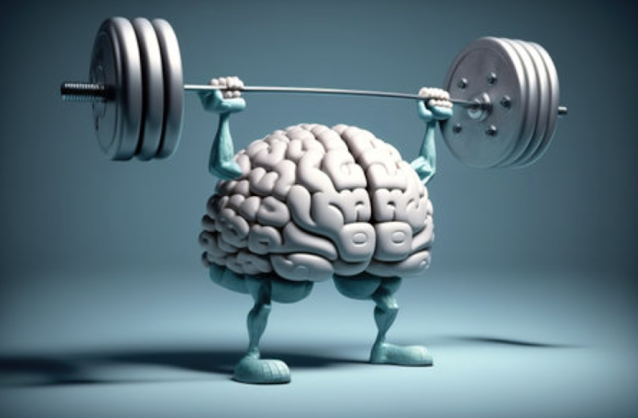Unveiling the Neuroscience of Shedding Unwanted Weight: A Comprehensive Guide to Sustainable Weight Loss
Unveiling the Neuroscience of Shedding Unwanted Weight: A Comprehensive Guide to Sustainable Weight Loss
Weight management is a multifaceted journey that many individuals embark on with the goal of achieving a healthier and more satisfying life. However, for those who carry excess weight they dislike, the journey can be fraught with challenges, often rooted in the complex interplay of biology, psychology, and environment. In this comprehensive 3500-word article, we delve into the neuroscience of losing weight you dislike, providing valuable insights into the brain's role in weight regulation, behavior change, and sustainable weight loss strategies. By understanding the neural mechanisms at play, individuals can gain a deeper appreciation of the weight loss process and enhance their chances of achieving their goals.
I. The Neuroscience of Weight Regulation
1. The Brain's Role in Weight Regulation
Explore the brain's central role in controlling appetite, metabolism, and body weight through intricate neural circuits and hormonal signals.
2. The Reward System and Cravings
Understand how the brain's reward system influences food cravings, emotional eating, and the formation of dietary habits.
3. The Gut-Brain Connection
Discover the bidirectional communication between the gut and the brain, where signals from the digestive system impact appetite and eating behavior.
II. Understanding Emotional Eating and Stress
4. Emotional Eating and the Brain
Examine how emotions, stress, and mood can trigger overeating and weight gain, with a focus on the brain's response to stressors.
5. The Role of Neurotransmitters
Learn about the role of neurotransmitters like serotonin, dopamine, and endorphins in emotional eating and how they can be harnessed for healthier coping mechanisms.
III. The Neurobiology of Habit Formation
6. Habitual Eating Patterns
Explore the neuroscience behind habitual eating patterns, and how the brain forms and sustains habits, including those related to food.
7. Breaking Bad Habits
Learn strategies to break unhealthy eating habits by reprogramming neural pathways and fostering more constructive behaviors.
IV. Brain Plasticity and Behavior Change
8. The Neuroplasticity Paradigm
Understand the concept of neuroplasticity, the brain's capacity to rewire itself, and how it can be harnessed for lasting behavior change.
9. Cognitive Behavioral Techniques
Explore cognitive-behavioral techniques that leverage brain plasticity to modify thoughts, emotions, and behaviors related to eating and weight loss.
V. Appetite Regulation and Hormones
10. Hormones and Appetite Control
Examine how hormones like leptin, ghrelin, and insulin play crucial roles in appetite regulation and how they can be managed for weight loss.
11. The Role of Sleep and Circadian Rhythms
Learn about the impact of sleep and circadian rhythms on hormone regulation and their relevance to weight management.
VI. Sustainable Weight Loss Strategies
12. Mindful Eating and Intuitive Eating
Discover the principles of mindful eating and intuitive eating, which promote a healthier relationship with food and eating.
13. Behavioral Modification Techniques
Explore evidence-based behavioral modification techniques and strategies for sustainable weight loss, including goal setting and self-monitoring.
14. Exercise and Physical Activity
Understand the neural and physiological benefits of regular exercise in weight management, including its effects on mood and motivation.
15. Dietary Approaches
Examine various dietary approaches, from low-carb diets to intermittent fasting, and their impact on brain function and sustainable weight loss.
VII. Seeking Professional Guidance
16. The Role of Healthcare Providers
Recognize the importance of seeking professional guidance, including dietitians, psychologists, and medical professionals, in your weight loss journey.
17. Weight Loss Surgery and Medical Interventions
Explore surgical and medical interventions for weight loss, including their benefits, risks, and suitability for different individuals.
VIII. Overcoming Weight Loss Plateaus and Setbacks
18. Plateaus and Setbacks
Learn about the common challenges of weight loss plateaus and setbacks, and how to navigate and overcome them.
19. Resilience and Self-Compassion
Discover the role of resilience and self-compassion in maintaining motivation and mental well-being during your weight loss journey.
IX. The Neurobiology of Weight Maintenance
20. Maintaining Weight Loss
Understand the neural mechanisms involved in maintaining weight loss and preventing weight regain.
21. Long-Term Lifestyle Changes
Explore the importance of adopting sustainable, long-term lifestyle changes for lasting success in weight management.
X. Conclusion
Weight loss you dislike can be a challenging endeavor, but by understanding the neuroscience behind the process, individuals can approach it with greater insight, resilience, and effectiveness. The brain's intricate neural circuits, reward systems, and adaptability offer both opportunities and challenges in the quest for sustainable weight loss. By harnessing the power of the brain's neuroplasticity, adopting evidence-based strategies, and seeking professional guidance when needed, individuals can not only shed unwanted weight but also embark on a transformative journey toward improved health, well-being, and self-empowerment.

















No comments